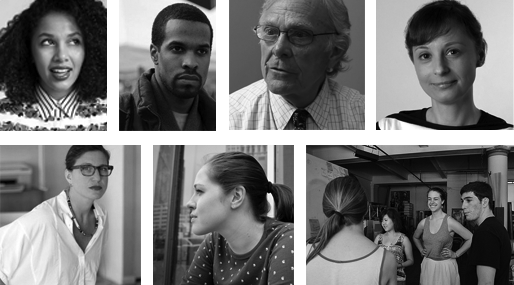
Project 4 :: The Future of Stuff



Visionaries: Rachel Brooks, Matthew Burnett, Bowman Cutter, Catarina Mota, Bridget Russo, Veronika Scott
The Challenge: At Breaker, we develop innovative and enterprising young people by challenging them to design product and service solutions for emerging industries. Join us for our next design challenge as we explore The Future of Stuff. Whether we’re looking for a new pair of jeans or ten thousand microprocessors, the way we go about making and getting objects is changing fast. Current and developing technologies present exciting opportunities to democratize production and personalize the manufacturing process making it hyper-local with tools like 3D printing and facilities like TechShop. We’re entering an age of mass customization and pushing in new directions with products that bridge the digital/physical divide. How might we build an economic base of producers not just consumers? What products, services, communities, platforms, and learning engagements will facilitate entry, advancement, innovation, and continued growth of the manufacturing base in the US? This team of Breakers was challenged with identifying opportunities to create immediate value in this growing sector.
Breaker’s June challenge, in partnership with The Institute of Design at Stanford, was a tuition-free, 14-day intensive workshop from June 19 to July 2, 2013. Students 18-24 years of age applied to any one of three city teams in New York, Detroit, or the San Francisco Bay Area. Additional online teams were available to those who could not attend in person.

Project 3 :: Technology for Civic Engagement



VISIONARIES: Jake Barton, Jeremy Heimans, Andrew Rasiej, Clay Shirky, Conor White-Sullivan
The Challenge: Information and social technologies have enabled unprecedented opportunities for popular participation in civic life. Recent products and services have improved the efficiency and effectiveness of urban services (e-services), increased access to information (transparency), encouraged constituent participation in the production of public services (co-production), and enabled citizens to actively shape public policies (e-democracy)* . The Breaker team is challenged to further improve representation and deliberation by applying a “community-up” approach using a process of human-centered design.
*Harvard Professor Archon Fung used this framework for understanding current innovations in technology for civic participation at a Living Cities’ “Trends in Focus” forum on January 19, 2012.
:: This challenge occurred between May -August 2012.
Follow the team and their progress on: Twitter, Tumblr, and Flickr.
This project was made possible by a generous grant from the Harnisch Foundation
Collaborators & Sponsors :: The Team :: Breaking News
Project 2 :: Urban Micro Agriculture


VISIONARIES: Majora Carter, Majora Carter Group + Danielle Gould, Food+Tech Connect
The Challenge: Community gardens, local organic farming, rooftop farms - all are a more prevalent part of our lives as we become more conscious of the food industry’s impact on our health, the economy, and the environment. So far, these gardens and farms have been wonderful sources for connecting people to food and to each other, but their impact remains small-scale and local, benefiting those who can afford to pay a premium for fresh food. In this light, we are challenging the Breaker team to create a product or service that envisions a new role for urban micro agriculture, within a broader ecosystem of food and agricultural consumption. Like other wise ones before us, we are starting locally and thinking globally.
:: This challenge occurred between January - April 2012
Follow the team and their progress on: Twitter, Tumblr, and Flickr.
Thanks to all of our Kickstarter backers for helping us make this project happen.
Collaborators & Sponsors :: The Team :: Breaking News
Project 1 :: Future of the Book



The Visionaries:Tom Uglow, Google Creative Labs, Charlie Melcher, Melcher Media
The Challenge: Literacies are multiple, but it is textual literacy, or lack thereof, that maintains the strongest correlation to poverty. After early childhood reading acquisition, the middle school years (12-14 years of age) become a critical literacy period wherein students either develop an intrinsic motivation to read independently or read only the bare minimum required to get by in school and beyond. Digital media and technology are transforming our notions of the book, of storytelling, of reading itself. The Breaker team was asked to consider the role of emerging technologies in addressing the rise of functional illiteracy in the US. The resulting products, MoBo and Unbound, were designed to get kids reading and keep kids reading during the pivotal middle school years.









